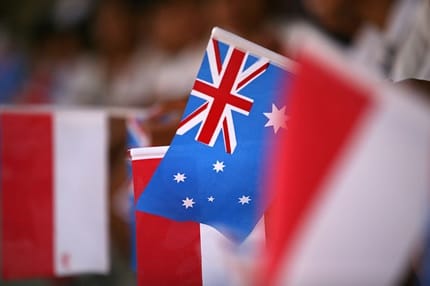Last week, Australian Prime Minister Tony Abbott and Indonesian President Susilo Bambang Yudhoyono held their first face-to-face conversation since the controversy over asylum boats and phone-tapping scandal. This highly anticipated reunion between Indonesia and Australia might have taken place earlier in May when Mr Yudhoyono handed Mr Abbott an olive branch, with an invitation to the Bali Summit. But Mr Abbott declined the invitation, citing work commitments related to his first annual national budget.
Although no immediate resolution to the thorny issues at hand was mooted, experts agree that the tone of last week’s meeting was a right step in normalising bilateral relations. Still, critics believe much politicking needs to be done to restore mutual trust and respect between the two nations. Perhaps, time will heal all wounds.
Up to Australia to make the running
Mr Abbott was quick to break the ice with praise for Mr Yudhoyono, calling him a “senior statesman” of Southeast Asia, a “great president” of his country and “very good friend to Australia”. Before the visit, Mr Abbott had stated that he was “determined to do everything” he could to improve and reinforce ties, and emphasised that Indonesia, in some respects, was Australia’s most important partner in the region.
Indeed, it is now up to Australia to make the running. With Indonesia poised to become the seventh-largest economy in the world by 2030 – based on Mckinsey’s 2012 estimates – Australia clearly needs its northern neighbour more than the other way around. Though current trade and investment flows between Australia and Indonesia today may be relatively small, they have tremendous potential for growth. Latest reports indicated that two-way trade soared by more than 42 per cent from US$1.2 billion (S$1.5 billion) in January-March 2013 to US$1.7 billion year-on-year. Obviously, if Australia wants to benefit from an economy that will be double the size of its own in a matter of a decade or so, it needs to mend fences and shift its diplomatic strategy into high gear, especially in the near to medium term.
Courtship through the transition
Come July, Indonesia will elect a new president. Australia will need to stay on course and adapt its strategies to the changes in Jakarta. One possible outcome is that presidential hopeful Joko Widodo (aka Jokowi) may put off foreign policy to focus on domestic politics in his first term. Herein lies a potential challenge if Australia tries to restore bilateral ties too late and loses momentum through Indonesia’s power transition. Hopefully, Mr Jusuf Kalla, Jokowi’s running mate, will stand in to bridge this potential lacuna, given his strong international relations background and pragmatic approach to economic development and business.
Photo: Department of Foreign Affairs, Australia
Sources:
New era of Australia-Indonesia ties [Jakarta Post, 9 June 2014]
Australian-Indonesian relations: an olive branch there for the taking [The Guardian, 5 June 2014]




